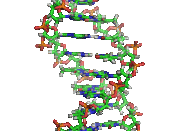decent paper thorough paper
Alexander R.
Prof. Kohn
Darwinism and Evolution
12-6-96
The Future of Evolution
Evolution, the science of how populations of living organisms change over time in response to their environment, is the central unifying theme in biology today. Evolution was first explored in its semi-modern form in Charles Darwin 's 1859 book, Origin of Species by means of Natural Selection. In this book, Darwin laid out a strong argument for evolution. He postulated that all species have a common ancestor from which they are descended. As populations of species moved into new habitats and new parts of the world, they faced different environmental conditions. Over time, these populations accumulated modifications, or adaptations, that allowed them and their offspring to survive better in their new environments. These modifications were the key to the evolution of new species, and Darwin proposed natural selection or 'survival of the fittest' as the vehicle by which that change occurs.
Under Natural Selection, some individuals in a population have adaptations that allow them to survive and reproduce more than other individuals. These adaptations become more common in the population because of this higher reproductive success. Over time, the characteristics of the population as a whole can change, sometimes even resulting in the formation of a new species.
Humans have survived for thousands of years and will most like survive thousands of more. Throughout the history of the Huminoid species man has evolved from Homo Erectus to what we today call Homo Sapiens, or what we know today as modern man.. The topic of this paper is what does the future have in store for the evolution of Homo Sapiens. Of course, human beings will continue to change culturally; therefore cultural evolution will always continue; but what of physiological evolution? The cultural evolution of...



"decent paper thorough paper"
Well, think your Prof got it right. And it also looks like part of your paper was cut off--it ends abruptly.
As I took Human Genetics years ago, this paper could serve as a generalized guideline to how evolution continues, especially as presented in your 'seperate societies' example where exact gene pools in differing environments will result in different evolutions of certain genes.
However, the paper came across as more regurgitation than an in-depth research. I'd agree with your prof's grade as well.
BTW...are you related to Jimmy the Greek? That closing comment (although part of the paper is missing) is the exact thing he got canned for back in the 80s!! :)
--AoE
9 out of 9 people found this comment useful.